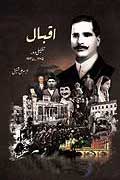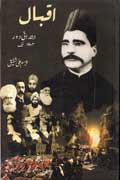|
The writings
of Khurram Ali Shafique
Comprehensive Biography of Iqbal
Thousands of books have been written
about Iqbal, and the amount of information available is unusual.
Since he is the only poet acclaimed to be the ideological founder
of a nation-state, the need to organize this information is also
unparalleled.
The six-volume comprehensive biography
of Iqbal was conceived out of this need. The project has now been
adopted by Iqbal Academy Pakistan, which is publishing as well as
facilitating the research (the first edition of the first book was
published by Alhamra, a private publishing house in Islamabad).
The comprehensive biography divides
the life of Iqbal into five phases summarized by the author in his
other work Iqbal - An Illustrated Biography (2006). One
book is proposed for each phase, and will be epilogued by a final
volume covering the evolution of Iqbal's ideas since his demise:
- Up to 1904: early years
- 1905-13: formative years
- 1914-22: middle period
- 1923-30: peak years
- 1931-38: later years
- Since 1938: evolution of thought
The approach which evolved during
the writing of the first biography is based on five principles:
1. Include every known fact
The series is intended for providing complete information
to the reader: after reading these volumes, one should be able
to say that everything known about Iqbal has come to their knowledge,
and now their interpretation of his work is likely to be as much
well-informed as that of anyone else in the field.
2. Maintain chronological order
Every detail should be presented in a strictly chronological
order, which means that if Iqbal started writing a poem, then
went to teach a class, wrote down his daily budget in a notebook,
and picked up the poem again after several days then these incidents
should be narrated exactly in this manner – since that's
how we live our lives.
3. Anthologize
What’s happening in the mind and conscience
is usually reflected in a person’s writings. As many excerpts
from poems, letters, papers and notes of Iqbal have been included
as were possible. Also included are excerpts from significant
writings by others to whom Iqbal may have paid attention.
4. Period setting
In order to appreciate the life and work of Iqbal
we need to transport ourselves to his times. Not only significant
events of that period are included in the biography, but also
trivia such as advertisements by quack healers printed in the
same magazines where Iqbal’s poems were also being published.
5. Fragmented narrative
In real life, we are free in how we choose to see
connections between incidents (Did your boss snub you today
because your work wasn’t good or is everyone going through
a rough patch these days? One's opinion on this may not be
the same as one's colleague’s). Likewise, each incident
and item in these books is treated as a separate section, varying
from one line to several pages.
Post
comment or read others'
|


